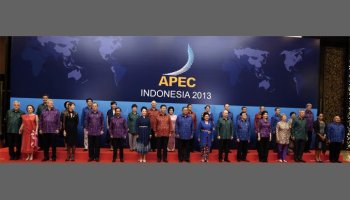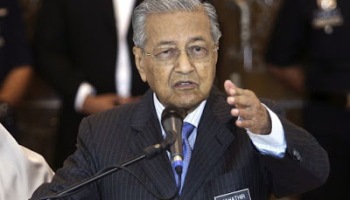https://youtu.be/urgAwPOumko
https://youtu.be/RIGRKgEdf3Q
https://youtu.be/gsGpOuRCvvM
https://youtu.be/a9AWsvRXf_I
https://youtu.be/WMokFrZ6MLg
https://youtu.be/FB94vcJwJLE
Pence's APEC speech offers nothing new
Good reason for China's rising popularity in South Pacific
Chinese President Xi Jinping met with leaders of eight Pacific island countries and officials in the Papua New Guinea (PNG) capital on Friday and all agreed to elevate their relations to a comprehensive strategic partnership based on mutual respect and common development.
On Friday, Xi also attended the hand-over ceremony of the China-assisted Independence Boulevard, as well as an opening ceremony for the Butuka Academy, a public service project funded by China. This is seen as evidence of the enhanced cooperation between China and Pacific island nations.
The US and Australia have mixed feelings about the cooperation between China and Pacific island countries. Their anxieties stem from their long-standing view of geopolitics. Australia has announced a plan to increase investment to Pacific island nations, while the US is also setting up a fund to boost aid in the region to counter China's perceived influence.
Interestingly, China has entered the Pacific island region with nothing but technology, funds and its friendly willingness to cooperate. Although the region has been regarded as being under Australia's influence, it was half-abandoned by Canberra. Western countries have become used to poverty in the islands. Now China has come to improve infrastructure, which has not only stimulated regional economies, but also caused the region to reclaim the attention of Western countries, such as Australia and the US.
Pacific Island countries certainly have every reason to welcome China because China's cooperation has revitalized the region. China's aid is pragmatic, and not subject to any political conditions. It benefits those countries, without causing harm.
Some have made the analogy that just like some member states of the Association of Southeast Asian Nations (ASEAN) want to see a balance between the US and China in the region, Pacific nations also expect China to weigh in to counter the influence of Australia. However, what makes this case different is that China brings engineering equipment to the Pacific, while in contrast, the US sends warships to the South China Sea. Pacific island countries hope to see more Chinese equipment, but ASEAN is calling on the US to stop its sabre rattling. On Friday, Malaysia's Prime Minister Mahathir Mohamad told the US that it does not wish to see warships in ASEAN waters, but that small patrol boats are fine.
Geopolitics still exist in today's international arena, but it must not be the dominant issue. It is understandable that Australia and the US have doubts about China's cooperation with Pacific Island countries. However, everyone should refrain from the "geopolitical reverie," and fully respect the growing influence of international economics.
China's Belt and Road Initiative (BRI) has gradually formed a tie among some Pacific Island nations, and it is based on economy to economy. If we were to summarize its political significance, it has built up friendships and increased mutual trust among countries. It also highlights new relations between nations in the region.
More than ever before, there has been unprecedented competition in the South Pacific, and more and more funding has been channeled into the region. Pacific Island countries have never enjoyed so many options and for those countries, such competition is a good thing.
On the international stage, competitions introduced by the BRI are always positive. From the Pacific Ocean to the Indian Ocean, such benign competitions are indeed a phenomenon that has not seen before. Although some countries have made inappropriate comments regarding the BRI, they are using funds and technology to participate in the competitive process.
China has been implementing the principle of achieving shared growth through discussion and collaboration under the BRI. The "zero sum" struggle has recurred throughout Western history, which shows that China's firm pursuit of mutual benefit and win-win requires time.
China is confident and patient about reaching more consensus, but what is important is that Western society must also emancipate their minds of the 21st century international relations and break free from the shackles of the "zero sum" struggle and various historical memories.
There are six countries in the Pacific that have so-called "diplomatic" relations with Taiwan. Economic cooperation between Beijing and Pacific island nations that have established diplomatic relations with Beijing may change the mindset of Taiwan's allies in the region. Taiwan shall find nobody to blame for the change of the political landscape. As a proverb says, it is common that "man struggles upwards, and water flows downwards."
Australia and New Zealand are China's largest partners in the South Pacific region. There is no reason for China and the two countries to get into a duel in the region. Instead, the South Pacific should become a platform where new types of international relations are forged and tested.- Global Times
Related:
APEC leaders divided after after US, China spat
https://youtu.be/p43xYL79soU
https://youtu.be/0EaJWY8ERPg









